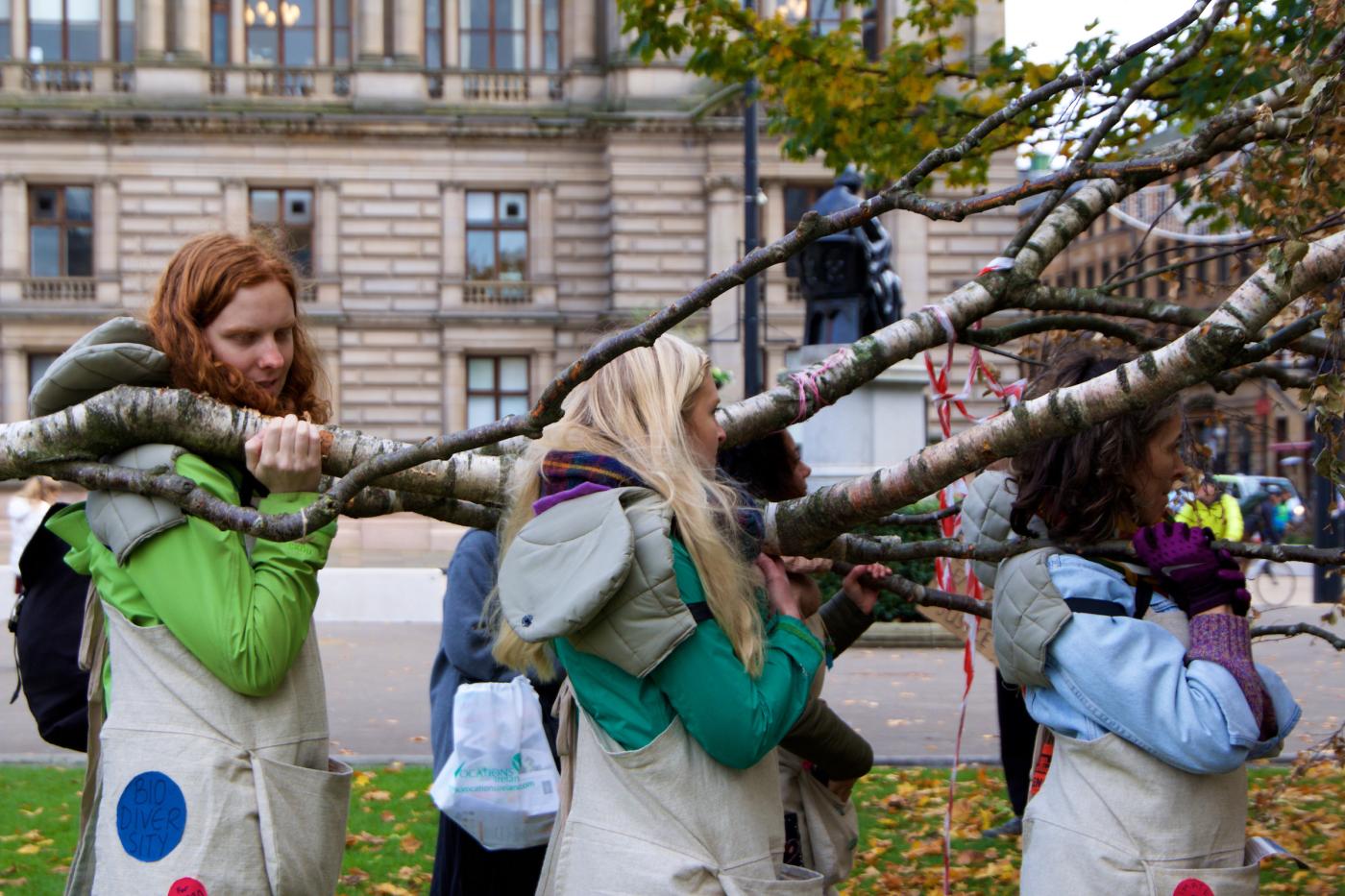As soon as I saw Pawel Pustelnik, a member of the WCC working group on climate change, he said the Korean expression balli, balli to me. I taught this word to him several years ago during a WCC meeting in Geneva. At that meeting, I brought my youngest son, Joshua, with me and I said balli, balli to him frequently. The expression balli, balli means “hurry up.” It is commonly used in Korea. Children learn this word at a young age as parents remind them to hurry up and get dressed, hurry up and get on the school bus, hurry up and eat your food. In some ways, Korean culture feels like a culture on the run, as Koreans are always in a rush to get things going.
During COP26 in Glasgow, I experienced an urgent sense of balli, balli. We are living in a time of climate crisis. If you just turn on the news, the rivers in India are polluted but due to religious requirements, Hindus are bathing in the Yamuna River which has toxic foam coating in parts of this sacred river. Small islands in the Pacific are being wiped from the map of the world, disappearing under the rising seawaters. Storms are getting stronger and people around the globe face the consequences of climate change.
Many religious leaders, activists and climate justice leaders attended COP26 to tell government leaders to act on climate change which is a religious, spiritual, social, and political issue.
James Bhagwan, general secretary of the Pacific Conference of Churches, who spoke at COP26 tells us, “I think from the faith spaces we really need to ask ourselves the question, how effective is our presence at COP and given the process of insistence which mostly excludes us, from really engaging in the process. We need to perhaps be more strategic in our preparations for COP. Some of us have access to our delegations. That is good, in terms of gaining information and influencing our delegations. Particularly as churches and faith communities, we need to be offering our pastoral support to the negotiators and the negotiators who are particularly fighting for climate justice and justice for their communities and prick the conscious of the negotiators from developed countries.” Activists and religious leaders need to continue to put pressure on political and world leaders to work to reduce carbon emissions and move away from fossil fuels.
Fletcher Harper, executive director at Greenfaith, reminds us, “World leaders and financial institutions are in continued thrall to the fossil fuel industry. They refuse to commit to phasing out fossil fuels. They refuse to commit to universal renewable energy access. In reality, they are planning the planet's destruction. Religious groups need to escalate and intensify their response. Killing the planet is against our faiths.” It is crucial that we move away from the use of fossil fuels if we are to live sustainably for generations to come. The need to use renewable and cleaner energy is essential to limit global warming to 1.5 degrees Celsius.
As people of faith, we need to commit ourselves to lowering our carbon footprint. We need to imagine different ways to live more sustainably. There needs to be a radical change of mindset and lifestyle if we are to treat all of God’s creation with love and respect.
Renemsongla Ozukum, a member of the WCC Working Group on Climate Change who lives in India, states, "There is so much smoke and virus dust in the wind, water is contaminated, there is bacteria in the rain, and fungal contaminated soil—we live with these every day. This is the reality and social location from where we should talk about the environment. Climate change cannot be measured and discussed from comfortably accommodating and sanitized air-conditioned spaces." Ozukum gives a crucial reminder to those living in wealthier countries that more sacrifices need to be made. The poor countries are suffering, and the rich are the biggest polluters.
We need to come together and act now in the Korean sense of balli, balli. The nearly 200 countries which signed the Glasgow Climate Pact need to put words into action. This pact urges that we need radical reductions in carbon emissions if we want to ensure temperature rise to 1.5 degrees Celsius. There is a lot of work ahead of us. We need to act balli, balli so that we can change this world for the better of all creation and halt the climate crisis that we are experiencing today.





